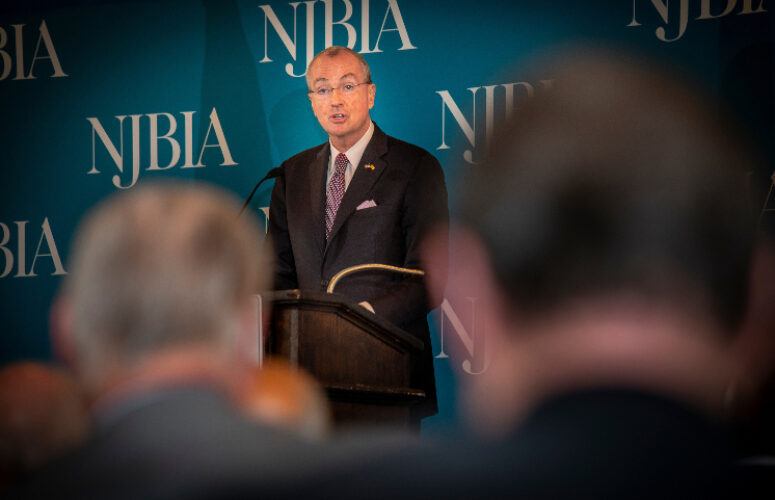
Investment & Savings
The Money Issue
By Colleen O’Dea, Contributing Writer On Dec 30, 2016Millennials learned more than just manners and morals from their elders; they have also picked up saving and investment advice from their Baby Boomer parents and other elders, whether implicitly or by example.
The savings and investment patterns of Boomers, as well as their life experiences, have influenced young adults in their decisions.
“Boomers grew up at a time when saving was part of their DNA, although retirement planning was not necessarily where it is today,” says Theresa de Leon, managing director for PNC Wealth Management in the New Jersey region. “They also knew that when they retired, they would have some type of defined benefit plan and Social Security carrying them through their retirement years. Millennials do not have defined benefit plans, so they need to save more.”
The number of traditional pension plans has declined by more than two-thirds since the 1980s, with fewer than 45,000 defined benefit plans in the United States in 2014, according to the US Department of Labor. Millennials are much more likely to participate in a 401(k), to which they have to make contributions, than in a plan in which they receive a pension funded solely by an employer. They may face a double whammy, as the future of Social Security is also uncertain: The trust fund is estimated to run out of money within 20 years.
This means Millennials must do a better job at saving to make sure they will have enough money when they stop working. de Leon says they have some advantages over Boomers, some of whom have also been thrust into 401(k)s; Millennials are more comfortable with technology that can help them manage their savings and investments, while Boomers are more likely to seek professional investment advice.
Acccording to the Barth Group at Merrill Lynch in Short Hills, “Millennials are more serious and goal oriented about savings and investments than their parents were at the same age.” Boomers at that age had higher expectations of financial security through company pensions and entitlement programs. They also did not expect to live as long as they are. Many are not financially strong enough to live comfortably in retirement.
“Millennials are witnessing all of this and that may be part of the reason that we are seeing them think about savings and investments at an earlier age,” posit the Barth advisors.
And they may not be following the same traditional path that Boomers did – school, work, family and then travel or otherwise enjoy life. Millennials are not marrying and buying homes at the same rate as their parents and grandparents, and some are not working in traditional jobs.
They need to make different choices. For instance, according to de Leon, Millennials cannot rely on interest rates to sustain their lifestyles. They need to save more for retirement and they need to also worry about funding healthcare –not something they tend to focus on at an early age.
Paying for healthcare could become a critical issue for Millennials, as well as some Boomers, as the Medicare trust fund is expected to use up its reserves before 2030, putting the health insurance programs for tens of millions of older Americans at risk.
Given all this, the Barth Group’s advisors say Millennials need to “have a more formal planning process incorporated for healthcare issues” as part of their investment decisions.
The advisors also urge Millennials to plan for their financial goals as early as possible, certainly earlier than most Boomers did, so they can better track their progress in achieving their goals and make better financial decisions throughout their lives.
“People also want to plan for more financial flexibility from an earlier age than ever before,” according to Barth. “People are less and less inclined to plan for a sedentary retirement. There is a new and modern retirement we are all thinking about that involves a more focused pursuit of our personal interests and passions.”
Millennials also tend to be interested in a fast growing area of new investment strategies: impact investing, which is the idea that investments should generate a social and environmental impact, in addition to financial returns, the Barth advisors say.
That means they will need to do more research and it may be a little more challenging to make investment decisions so they do not put themselves in a tenuous financial situation by accepting lower returns in exchange for greater social gains.
Still, there are some investment practices that remain the same. For instance, de Leon says everyone, regardless of age, should begin saving in an employer-sponsored retirement plan, if available, and a ROTH IRA as soon as they begin working. It remains important to “diversify amongst various classes of investments, keeping in mind goals and time horizons,” she continues.
For Millennials still decades away from retirement, that means accepting greater risk. Boomers near retirement should play it safer.
Working with professional investment and planning advisors is also important, because they will know the best strategies to maximize returns, de Leon says.
In the case of Boomers, the rise in the cost of healthcare and increased life expectancy were not something for which the average person had planned, de Leon says.
“In addition, low interest rates do not provide them with the supplemental income that they were hoping for and are of concern as they move from earning to living on a fixed amount of income,” she says. “The rising cost of long-term care and the rising premiums on many of the policies that they have purchased to provide for that contingency also present a challenge.”
Additionally, many Boomers are also trying to help aging parents who may not have the financial wherewithal to care for themselves properly, while also trying to pay for their children’s college costs or provide for their young adult children who’ve graduated from college, but are unable to find a good job.
“Baby Boomers are concerned about outliving their assets due to an investment world of low returns, greater longevity, and increasing healthcare costs,” note the Merrill Lynch advisors.
As for Millennials, they are going to have to worry about employment throughout their lives, which means saving as much as possible in liquid investments is important. Some Boomers may have spent their entire careers with the same employer – that is no longer the norm.
“As companies automate more responsibilities, more jobs will be lost to computers,” de Leon says. Millennials will need to continuously reinvent themselves.”
There’s a lot of uncertainty about the near future for both groups as well.
The Barth Group advisors note that it’s unclear what kind of fiscal and tax policies the new administration in Washington, DC plans to pursue, and say that could have a major affect on investors’ actions.
Related Articles:






